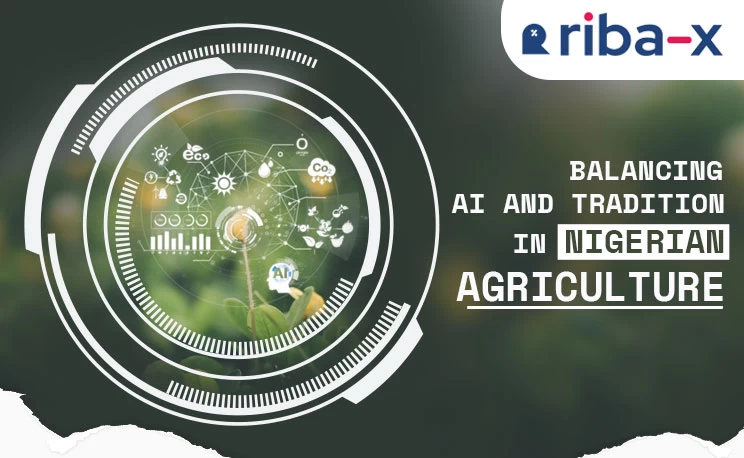 Olugbemi. Adeyinka Ogunleye
4 months ago
Olugbemi. Adeyinka Ogunleye
4 months ago
Overview
The Human Touch: Balancing AI with Traditional Skills in Nigerian Agriculture
Agriculture since the inception of the society has remained to be the foundation. When it comes to Nigeria, it is found that nearly 40% of its population relies on it as a significant source of livelihood. Amidst the challenges related to food security, climate change, and poor agricultural practices, it has become mandatory to weaponize the full potential of AI to derive the best quality outputs. On the other hand, the high-quality yields in adequate amounts can also address the pressing challenges like food scarcity. Nowadays, the Nigerian startups that specialize in the development of agri-tech solutions are influencing the process of upliftment of the communities positively. This community post aims to dive deep into balancing AI with traditional agricultural practices for top-quality yields, while also exploring the role of the Nigeria business community in fostering innovation in this space.
Balancing AI with Traditional Skills in Nigeria
Agriculture in Nigeria has witnessed a shift in the present time. Leveraging the potential of AI solutions, the farmers of this country are indulging in data-driven decision-making. Despite such modern innovations in place, there is a population of farmers who are far away from proper digital knowledge and the right skills. AI in Agriculture is allowing farmers to provide actionable insights on soil health and crop conditions and minimize resource wastage. Here are the ways through which the farmers in Nigeria integrate AI with traditional skills, often supported by initiatives from the Nigeria business community.
Integrating Knowledge Systems
When it comes to achieving optimal outcomes in the agricultural sphere, it is of paramount importance to embrace an integrated approach. Here are the several ways through which the farmers in Nigeria can possess a profound understanding of the local ecosystem and can shape their local practices accordingly to come up with the desired outputs.
Weather Patterns
Traditional farmers are presently relying on indigenous knowledge to interpret seasonal changes and weather patterns. This expertise aids in making the right prediction of rainfall, drought, and other climatic conditions that may influence the crops. Precision farming in Nigeria is coming forward to analyze the weather-related data sets for the best decision-making practices.
Local Ecosystem Insights
The farmers and the people hailing from agricultural backgrounds are well aware of the unique characteristics of the land, including soil types, water availability, and biodiversity. This deep-rooted understanding comes in handy in making informed decisions related to crop types and others.
Crop Management Techniques
The knowledge about pest control, crop rotation, and others is invaluable in agricultural practices. The most intriguing part is that Nigerian farmers now have the liberty to amalgamate organic or low-cost solutions with high-tech approaches.
Training Programs
By designing comprehensive training programs, farmers can be empowered with the right set of AI knowledge and at the same time integrate it with traditional practices to derive optimal outcomes in the long run. Even the online community in Nigeriais educating entrepreneurs and farmers with the right set of digital knowledge that is congruent with modern-age agricultural practices.
Community-Based Approaches
The community-based initiatives can also be considered by the policymakers of Nigeria for the dissemination of knowledge more effectively. Local agricultural cooperatives enable the farmers to gain exposure to new technologies.
Final Thoughts
The future of agriculture in Nigeria lies in the strategic integration of AI and traditional norms. However, the Nigeria business communityis coming ahead with the initiative of knowledge dissemination that can prove to be beneficial for both the people and the country as a whole. This balanced approach not only addresses immediate challenges such as food security but also ensures that the rich agricultural traditions of the nation are preserved. To navigate the complex agricultural environment, the participation of tech-based Nigerian startups is an absolute must-have action.



